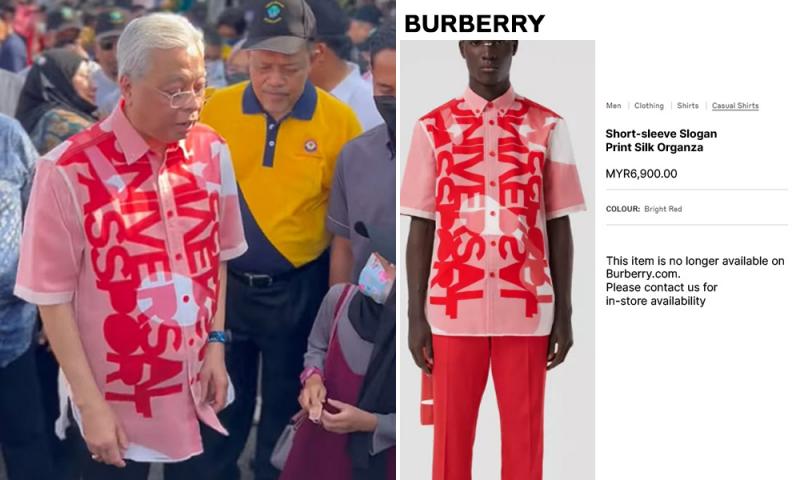LETTER | Why obsess over price of PM's shirt despite more serious underlying issues?
LETTER | Prime Minister Ismail Sabri Yaakob’s outfit during his appearance in the “Jom Heboh” carnival in Putrajaya last Saturday once again invited public flak.
Netizens revealed that the Burberry shirt covering the PM’s body costs RM6,900, and deemed him as insensitive and disconnected from the people when the country is currently hit by an inflation crisis with prices of many daily essentials rising.
However, such anger over the PM's insensitivity had covered up necessary conversations on the issue of receiving gifts in a public capacity by public servants.
Padang Rengas MP Nazri Aziz, in his defence for Ismail, claimed that the PM received a lot of gifts from many, including expensive clothes and other items.
This itself is the real problem.
Almost all regimes in the world impose restrictions on the gifts received by public servants. Many would require these people to report to a higher authority when the gifts received exceed a certain amount.
In Malaysia, the law prescribes that civil servants can only receive gifts that value a quarter of their salary or less than RM500. Anything beyond this value, the civil servant should report to their head of department to be granted approval.
The rationale behind such restrictions is to ensure the integrity of the public servants, to ensure that they won’t act on biased emotions because they have received gifts from a certain party.
In the case of political leaders, such restrictions can lower their chances of crafting biased policies in favour of the gift-givers, which may pose an unfair advantage to them or deny other communities of their rights.
Such gift-receiving culture within the public sector is alarming, as no matter how small the gift is, it comprises certain messages that wish the receiver to do something in favour of them, and often the receiver will fall for it due to the human instinct of wanting to repay the goodwill.
Not to mention when the gifts are expensive items that only the rich and elites can afford.
In this case, where Nazri said “many had gifted the prime minister”, it simply means the PM received gifts in his public capacity. Not to mention this was when Nazri was still the minister, showing how long such sick culture has existed in our country.
It’s totally okay for the PM to receive gifts in his public capacity as long as it doesn’t violate the limited amount, but it’s important for him to be transparent about where the gifts are from so that the public can judge what’s the motive behind them. Anti-graft bodies can also be prepared to monitor any development afterwards to detect any possible conflict of interest or corruption.
Sadly, most public conversations on this issue lie in the debate about whether the PM is sensitive to people’s plight and whether he is showing off his wealth by wearing such expensive clothing in his public appearances.
In my view, such debates are trivial, as the PM definitely has his own freedom in wearing clothes. As long as he can afford it, he can wear whatever he wants. What’s the point of buying expensive clothing and leaving it lying around?
Not to mention the Burberry shirt worn by the PM may just be an imitation, which costs much less. This is still unproven for now, so how can one guarantee that he is wearing an authentic Burberry that costs RM7,000?
Efforts to prove this, in my view, are also unworthy as even if you can prove that the PM is wearing an authentic expensive branded cloth, what can that do for the public’s welfare? It’s not like the people’s life will turn any better when the political leaders switch to cheap clothes.
However, the gift-giving culture behind this issue is worth investigating, as that may involve public funds and taxpayers’ money, posing a larger impact on people’s welfare.
Don’t be obsessed with how much the leaders’ clothing costs. Instead, be obsessed with the potential underlying corruption behind it. That would contribute more to the positive development of social discourse.
The views expressed here are those of the author/contributor and do not necessarily represent the views of Malaysiakini.
RM12.50 / month
- Unlimited access to award-winning journalism
- Comment and share your opinions on all our articles
- Gift interesting stories to your friends
- Tax deductable
